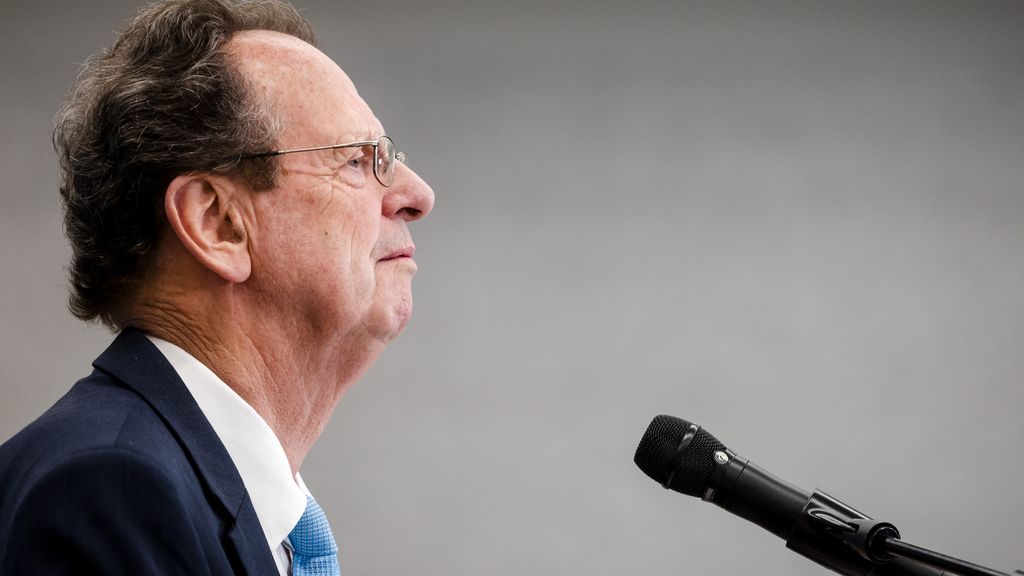My sister has passed away a couple of years ago. She still has an in memoriam account on Facebook. I am afraid to request to remove it as I am not sure whether someone is still looking at it sometimes for comfort. I do want to keep an eye on it in case someone posts something on her wall, so I still have an account myself to check it. That is the only reason. I never do anything else with it and I ditched Instagram.
- 7 Posts
- 454 Comments

 2·4 个月前
2·4 个月前Pombeertjes zijn wel echt superlekker. Echt beter dan de andere chips. Ik zou gewoon die kopen. ;-)

 3·4 个月前
3·4 个月前Goed bezig! Beter langzaam proces dan geen proces.
Ik heb zelf de grootste moeite om Google Maps te vervangen. Als ik in de file sta, dan mis ik up-to-date informatie over hoe lang de file is etc en hoe ik er omheen kan. Ik heb wel navigatie van Garmin gekocht die wat info binnen krijgt via de radio, maar dat werkt echt totaal niet. Ik gebruik nu die en/of organic maps en als ik de file in dreig te rijden toch maar Google Maps als ik haast heb.
Ik ga in elk geval de app van de ANWB eens checken die je noemt. Misschien dat dat nog wat is.

 6·4 个月前
6·4 个月前Hmmm, ik dacht dat ze zo voor vrijheid van meningsuiting waren. 🤔 Blijkbaar hangt dat van de mening af.

 6·4 个月前
6·4 个月前Niet echt. Ik vergeet elke keer een noodpakket te kopen tot ik zo’n opmerking zie. Dat zijn juist de momenten dat iedereen ze gaat kopen en alles duur en op is. Ik bedenk dan dat ik gewoon even moet wachten en vervolgens vergeet ik het weer tot er zo’n oproep is. 😅 Ik ga het nu op mijn to-do lijst zetten voor volgende week. Deze keer ga ik het echt regelen!

 1·4 个月前
1·4 个月前Zou best kunnen dat het zo werkt. Ik vraag me dan wel af hoe je in de rest van het leven functioneert als dat je niveau is. Het lijkt me dat je dan enorm vastloopt. Maargoed. Misschien zijn ze daarom zo boos.

 4·5 个月前
4·5 个月前Ja, absoluut. Echt niet te geloven dit. Ik ga st eds minder begrijpen van de mensen die hierop stemmen en nog steeds achter staan.

 2·5 个月前
2·5 个月前Ik ga eens kijken. Bedankt voor de tip!

 1·5 个月前
1·5 个月前Ik heb een offline systeem in mijn auto. Hij krijgt wel info via radio, maar dat is zo langzaam dat je er niks aan hebt. Als er file is of een wegafsluiting dan gebruik ik soms wel Google Maps nog. Ik heb tot nu toe geen alternatief gevonden voor dat soort gevallen. Weet iemand iets met betrouwbare live-info?
Wat goed dat je helemaal overstapt naar Signal. Het is mij nog niet gelukt. Ik ben toch te bang om dingen te missen. Er zijn echt weinig mensen die op signal zitten in mijn omgeving nog. Hopelijk komt het nog.

 2·5 个月前
2·5 个月前Thank you! 😊
I checked and I think it is only for the Netherlands (https://www.meerdangewenst.nl/category/oproepjes/oproepen-wensouders). I am not sure what country you are from, but I hope that there is something similar. I do not think that this is unique for the Netherlands probably.

 2·6 个月前
2·6 个月前Thank you. I really hope you do find another couple or woman who you can have children with. I have seen it work very well in practice. I think my uncles went on a website that matches people and there was some process a bit similar to dating on beforehand when they tried to find a match. However, in the end, of was a friend that was interested.
She wanted to have children, but did not have a partner. She also wanted to make sure the children had a father, so this was a good solution for her as well. Now they even have two fathers!
I hope you can find a solution like this or surrogacy. I think that everyone that is capable of taking care of a child and who wants it should be able to have one. I think it is one of the most fundamental experiences you can have in life. Good luck!

 3·6 个月前
3·6 个月前The problem has likely to do with the quality of my egg cells. They are not certain about this, but it is the most likely explanation. This means that surrogacy would not solve that problem. An egg cell donation might. However, in my country it is quite difficult to have access to that. There are large sperms banks, but not large banks for egg cells. So, we would need to find someone in our environment to donate an egg cell to me.
Are you a male or female couple (biologically I mean for making the child)? What happens here is that there are some women who do not have a partner, but still want a child. They often get a child together with a male gay couple and they raise the child with the three of them. I think government is even working on it to be possible for a child to have three parents legally. This is how my uncles got their twins. I am not sure whether this works the same with female couples. I see them often at the fertility treatment center, so I believe that they probably use the sperm bank.

 2·6 个月前
2·6 个月前In my country adoption from other countries is impossible as there have been several cases in which children were taken away from the parents illegally. They cannot check for that informing countries, so now adoption is not allowed anymore. Adoption within my country also is almost impossible. It is believed that children are best off with the biological parents. If they cannot live there, everything is focused on creating better circumstances so they can go back. The goal for children who cannot live at home is always to go back to the biological parents, so adoption almost never happens.
There is foster care and in soms cases children are in foster care for a very long time. Although the idea is still to get them back with the biological parents once the situation is safe, in practice that might not happen. You can just never be certain about that. However, I was abused by my parents and I got CPTSD from that. While my psychologist believes I would be able to be a foster mom, maybe even better because my experiences allow me to understand these children better, it is a really big obstacle to becoming one. The foster care organisations in general believe that if you have trauma in your past that you are not well-suited to take care of a child. They already told me it is not impossible for me to be a foster mom, but not to count on it because of the CPTSD.

 2·6 个月前
2·6 个月前Yes, that helps for me too! I have the cutest nephew who I see once a week and sometimes he sleeps over. In some cases it hurts, because it feels very empty when he leaves, but overall I am very happy to have at least him.

 2·6 个月前
2·6 个月前Thank you! It is good to know what others have been doing and how they have been dealing with it. Adoption in my country is not possible, unfortunately. I am probably not allowed to be a foster mom, as I have CPTSD. They are extremely strict with that here. Although there might be a very small chance that they will accept me if I can get a letter from my psychologist that I am stable and if I do well on all the tests. I am not counting on it though.
Maybe traveling or something like that would be nice sometime in the future. It is good to hear that they are still happy. That gives a bit of hope.

 551·6 个月前
551·6 个月前I would love to have kids. It seems like my biggest wish in the world. People keep telling me that having children was the most beautiful thing that happened to them. Still no baby after 9 fertility treatments, only a couple of miscarriages. I am 40 now and I have almost no time left. I feel broken by Al the treatments. Lost my work. Adoption is impossible in my country.
I would love to know how other people learn to live with this feeling.
Het allerbeste voor het nieuwe jaar allemaal!
Most people in the Netherlands are now also opposed to having blackface during Sinterklaas. However, there is a significant group that feel that their identity is threathed if you criticize their tradition. They are not the smartest people in our country (to say it lightly) and they express this opinion by doing stuff like that. Fortunately, they are a minority now and zwarte Piet does not look like that anymore.
It is a bit strange to have grown up in the Netherlands with zwarte Piet. As a child, I really liked him because I believed that he brought me presents. I wrote him and Sinterklaas letters and I have a lot of drawings of zwarte Piet that I made as a child. I did draw him like a stereotypical black person, because that was what he looked like at the time. As a child I did not know any better and I just liked zwarte Piet. But now when I look back at it I feel ashamed.
When I found out the issues with zwarte Piet, I stopped including him in the celebrations as a black person. I also had discussions with friends and family members about this. This sometimes lead to a lot of anger. I think they felt like their innocent and happy memories of zwarte Piet they had as a child were tarnished and they were accused of being racist. That was difficult for a while. Currently, all people in my direct environment do not celebrate Sinterklaas anymore with zwarte Piet as a black person. If I ask them why they were angey before about it, they just tell me that I wanted to change things too fast and they felt accused.






He is Dutch. I think he did not fully understand the connotations that the word “daddy” has in English. If you made the same joke in Dutch it is still weird, but it feels/sounds less degrading to oneself. It would be more like saying that someone is the wisest or the adult in the situation.